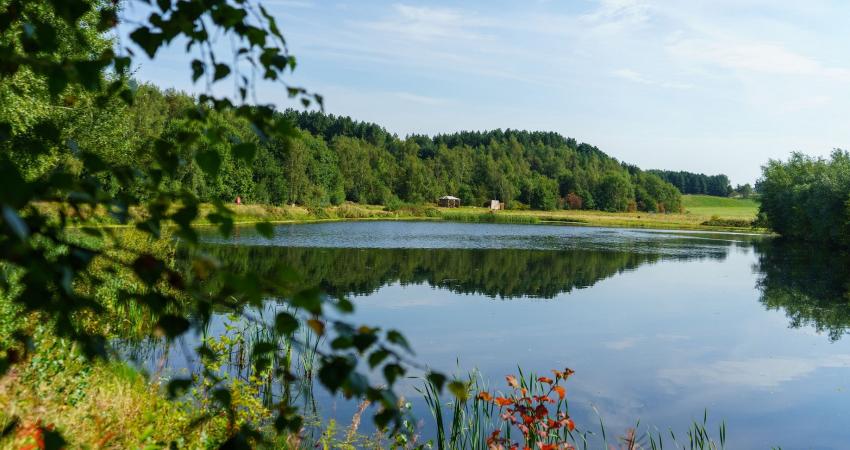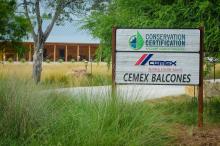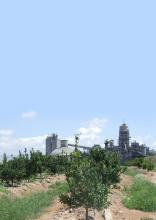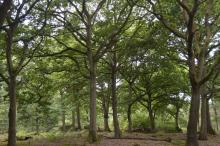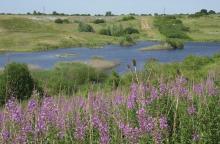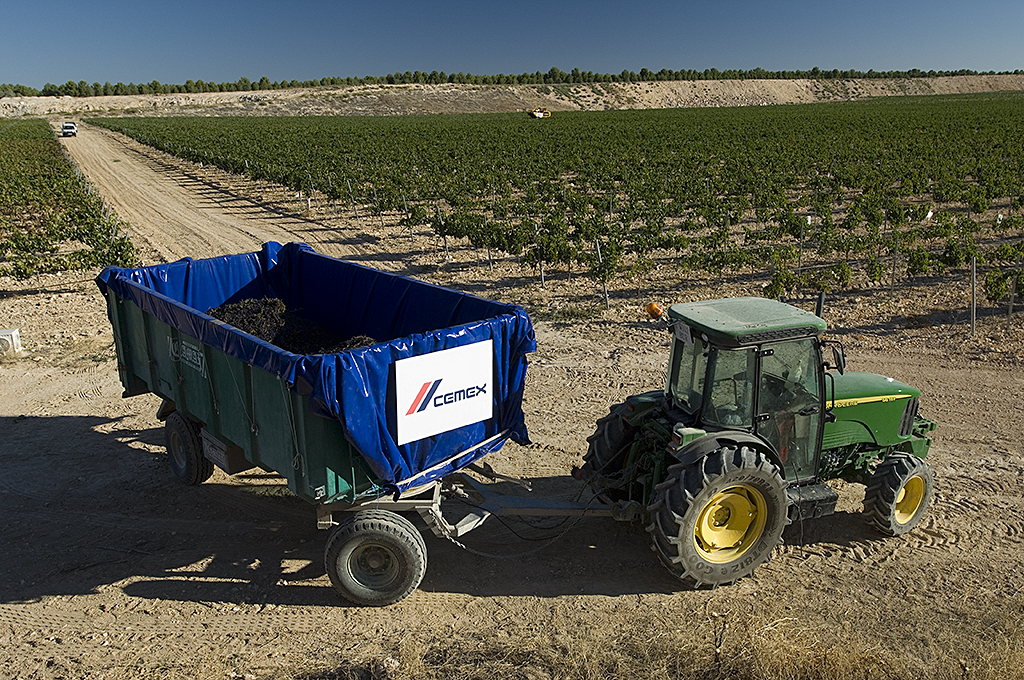
In Split, Croatia, CEMEX organised a volunteering activity in the olive groves located in its quarry, cooperating with the Agricultural and Veterans' Cooperative Lintar. In a few hours, seven teams of five to six volunteers managed to break the daily harvesting record with 1,162 kg of olives harvested. Almost 6.5 tonnes of olives were collected, from which 900 litres of eco-certified extra virgin olive oil will be produced. CEMEX also involved students from two local community primary schools in helping with the olive harvest.
Furthermore, restored quarries in CEMEX's Spanish operation provided additional examples of successful horticulture and environmental enrichment from productive restoration. The former 'El Clotet' quarry in Alicante, Spain, is now a 138-hectare agricultural holding with more than 55,000 fruit trees. The farm has started collecting more than 2,000 tonnes of citrus fruits for the national and export market, beginning in October and running until May.
Rafael Sempere, head of CEMEX's agricultural division in Spain, explained: "This restored quarry is an example of a sustainable, environmentally friendly farm that uses the latest irrigation techniques to avoid wasting a single drop of water, a very valuable resource in Spain."
Another pioneering project is CEMEX's vineyard, located in the former quarry of the Yepes cement factory near Toledo. Thirty hectares of land and 92,000 plants of the best grape varieties are cultivated in a restored natural environment. The production of grapes and wine from this site demonstrates how properly restored industrial land can provide agricultural production of benefit to both the local community and the natural habitat.
Andrew Spencer, vice president of corporate affairs, sustainability & ERM for CEMEX EMEA, added: "We recognise that our industry has consequences for the environment, but CEMEX is working hard to actively counteract climate change, and this drive is present through all aspects of our business. In our cement and aggregate quarrying operations across Europe, we restore and recultivate our sites to provide optimal conditions that are managed well to deliver for biodiversity. The recent harvests in Croatia and Spain, in particular, demonstrate how valuable this can be, both for wildlife and for local communities. Our vision is of a successful, sustainable CEMEX that makes a positive contribution to people and the environment."
CEMEX takes responsibility for the environment in its operations by improving management systems, reducing emissions, protecting biodiversity, and restoring worked-out quarries to nature and agriculture. Employees, subcontractors and local communities maintain awareness of sustainable habitats, for instance, by organising volunteer activities at our sites.

